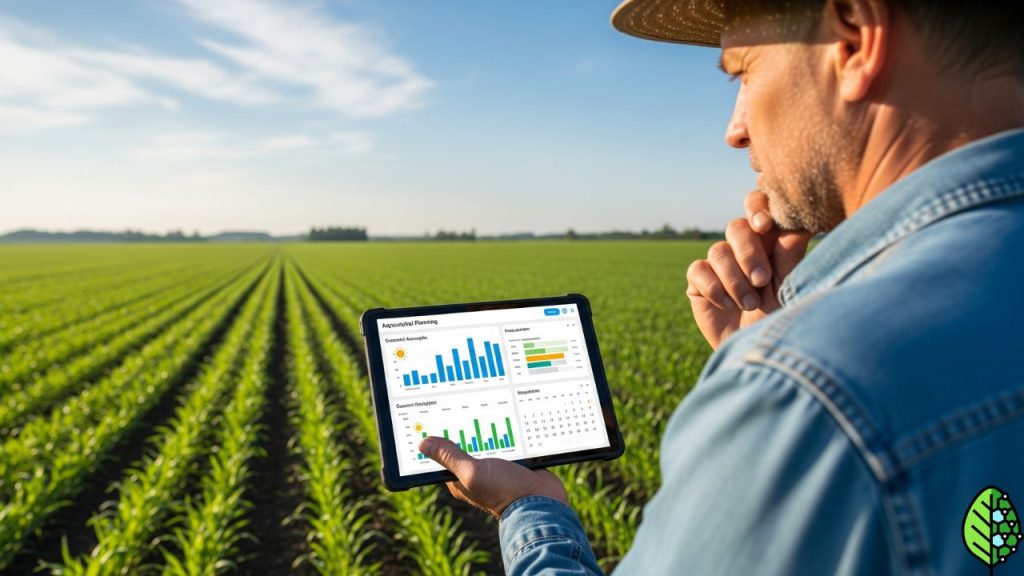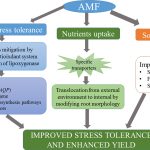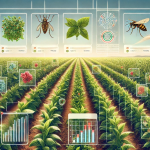Imagine being able to predict the weather with precision, safeguarding your crops and maximizing your harvest. As a farmer, you know that the weather can make or break your season.
Unpredictable conditions can lead to loss, while accurate forecasts can mean the difference between a good year and a great one. That’s where seasonal forecasting tools come into play. These tools offer you the insights you need to prepare effectively for the upcoming seasons.
By using them, you can anticipate weather patterns, make informed decisions, and protect your livelihood. Discover how these tools can revolutionize the way you farm and give you the competitive edge you’ve been looking for. Dive into our guide to learn how you can harness the power of seasonal forecasting to transform your farming strategy.
Climate Prediction Models
Climate prediction models play a vital role in agriculture. These tools help farmers anticipate weather changes. They provide insights into future climate patterns. This information guides planting and harvesting decisions. It reduces risks associated with unexpected weather events. By understanding these models, farmers can enhance crop yields.
Understanding Climate Prediction Models
Climate prediction models use scientific data. They analyze atmospheric conditions and ocean patterns. This analysis forecasts future weather changes. Models rely on complex algorithms. They simulate climate behavior over time. Such models improve decision-making in farming.
Types Of Climate Prediction Models
Several types of models exist. Statistical models use historical data. They predict future trends based on past patterns. Dynamical models simulate physical processes. They provide detailed forecasts using real-time data. Hybrid models combine both approaches. They offer comprehensive predictions.
Benefits Of Climate Prediction Models For Farmers
These models offer numerous benefits. They help farmers plan efficiently. They anticipate rainfall and temperature changes. This information guides planting schedules. It reduces crop damage from unexpected weather. Models also assist in resource allocation. Farmers can optimize water and fertilizer use.
Challenges In Using Climate Prediction Models
Despite benefits, challenges exist. Models require accurate data inputs. Inaccurate data leads to unreliable forecasts. Some models are complex. Farmers may need training to use them. Technical support is often necessary. Adapting models to local conditions is crucial. This ensures accurate predictions for specific regions.

Weather Data Platforms
Seasonal forecasting tools offer valuable insights for farmers. These platforms help predict weather patterns, aiding in crop planning. Farmers use these tools to optimize harvest times and minimize risks.
Weather data platforms have become essential tools for farmers aiming to optimize their operations. These platforms provide real-time insights into weather patterns, helping you make informed decisions about planting, irrigation, and harvesting. With the right data, you can anticipate weather changes and adapt your farming strategies accordingly, ensuring a productive and successful season.
Understanding Weather Data Platforms
Weather data platforms collect and analyze vast amounts of information from various sources. They use satellite data, weather stations, and radar imagery to provide accurate forecasts. This data is accessible through user-friendly apps and websites, making it easy for you to stay informed.
Features To Look For
When choosing a weather data platform, consider features like real-time updates and customizable alerts. These tools enable you to receive notifications about significant weather changes, keeping you ahead of the curve. Look for platforms that offer detailed forecasts, including temperature, precipitation, and wind speed.
Benefits Of Using Weather Data Platforms
Using these platforms can significantly impact your farm’s productivity. Accurate weather data helps you plan your activities to minimize crop damage and maximize yield. Imagine knowing about a potential frost in advance and taking measures to protect your crops—this proactive approach can save you time and money.
Popular Weather Data Platforms
There are several platforms designed specifically for farmers, such as Climate FieldView, FarmLogs, and Ag-Weather. Each offers unique features tailored to agricultural needs. Explore these options and see which aligns best with your farm’s requirements.
Implementing Weather Data In Your Farming Routine
Integrating weather data into your daily routine can be transformative. Start by checking forecasts each morning and adjusting your plans accordingly. Over time, this habit will become second nature, enhancing your farm’s resilience against unpredictable weather.
Have you ever thought about how much more efficient your farm could be with precise weather data at your fingertips? Consider giving these platforms a try and experience the difference in your farming operations. The right data can empower you to make smarter, more strategic decisions.
Decision Support Systems
Farmers face many challenges. Weather is one of the biggest. Seasonal forecasting tools can help. Decision Support Systems (DSS) provide valuable insights. These systems help farmers make informed decisions. They can plan better and reduce risks.
DSS use data and models. They predict weather patterns. Farmers can prepare for rain, drought, and other conditions. This information can improve crop yield and sustainability.
Benefits Of Decision Support Systems
Decision Support Systems offer many benefits. They provide accurate weather forecasts. Farmers can plan planting and harvesting. This reduces waste and increases efficiency.
DSS also help in resource management. Farmers can use water and fertilizers wisely. This saves money and protects the environment.
Key Features Of Decision Support Systems
DSS come with many features. They offer real-time weather updates. Farmers receive alerts about severe weather. This helps them take timely action.
These systems also provide soil and crop data. Farmers can monitor soil health. They can track crop growth and adjust practices as needed.
How Farmers Use Decision Support Systems
Farmers use DSS in many ways. They plan activities around weather forecasts. They decide the best time for planting and harvesting.
DSS also help in disease management. Farmers receive alerts about potential outbreaks. They can take preventive measures to protect crops.
Conclusion
Farmers can benefit greatly from seasonal forecasting tools. These tools help plan better. Weather patterns become clearer, aiding crop decisions. Farmers can reduce risks and boost yields. Understanding forecasts leads to smarter farming strategies. This knowledge protects investments and improves productivity.
Simple tools make a big difference. They offer guidance through unpredictable weather. Farmers gain confidence in their growing plans. Adopting these tools enhances farm management. A more secure future for farmers and their crops.



